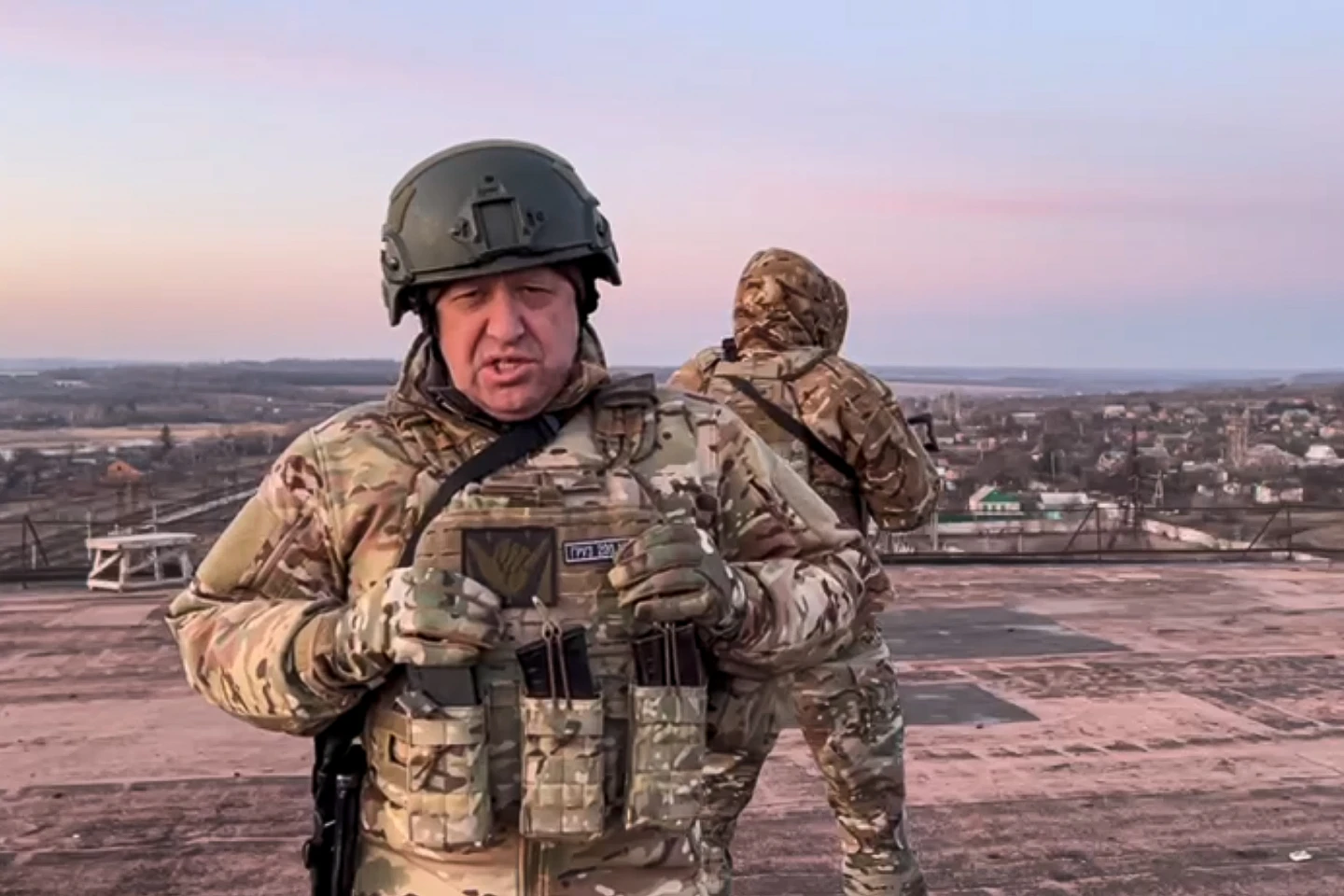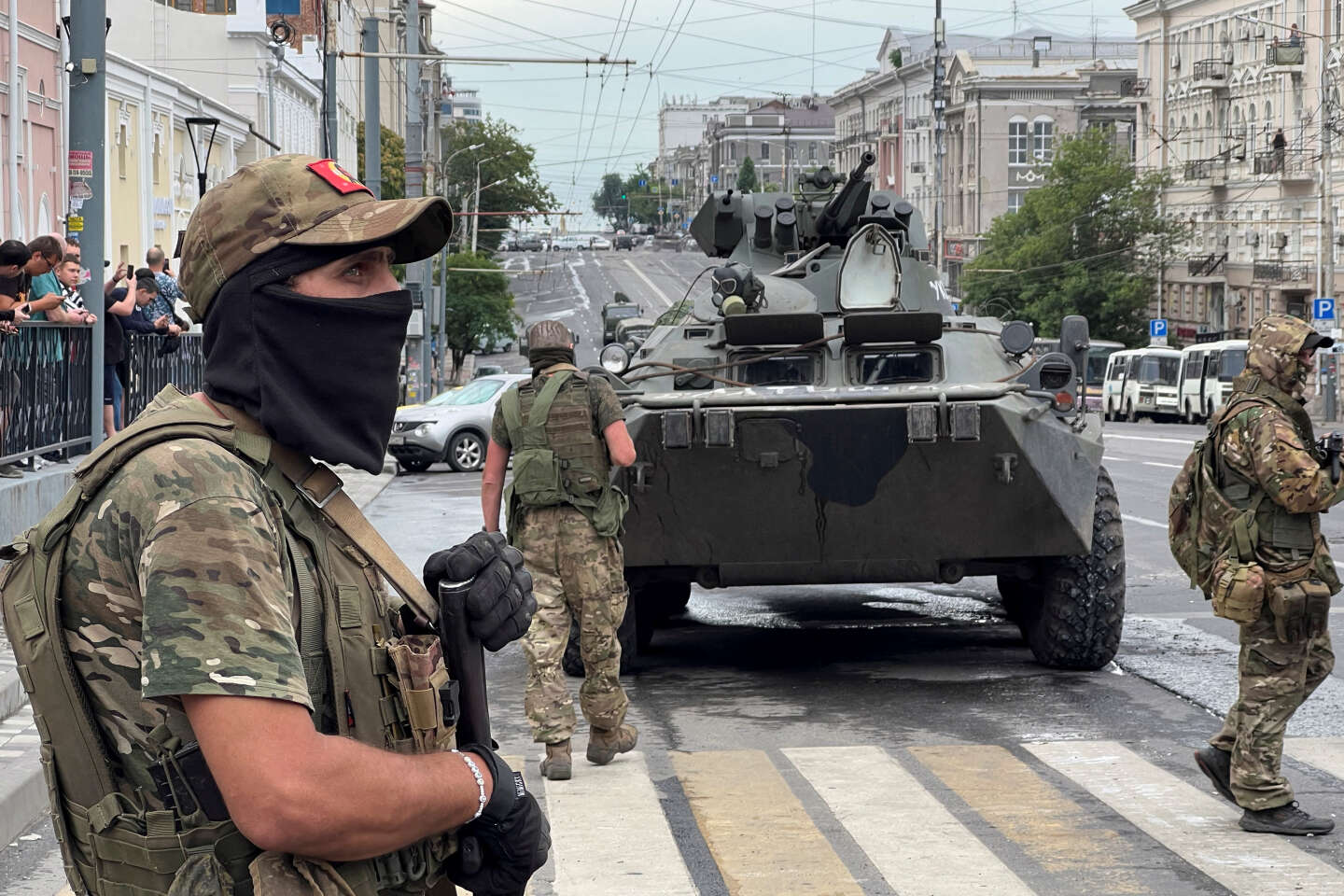Yevgeny Prigozhin, the owner of the Wagner private military contractor, has issued his most direct challenge to the Kremlin by calling for an armed rebellion aimed at removing Russia’s defense minister.
In response, security services swiftly moved to seek Prigozhin’s arrest.
The Kremlin’s response to the threat was evident in the increased security measures implemented in Moscow and Rostov-on-Don, which is home to the Russian military headquarters for the southern region and oversees the conflict in Ukraine.
The outcome of this confrontation remains uncertain, but it is likely to further disrupt Moscow’s military efforts, especially as Kyiv’s forces begin probing Russian defenses in the early stages of a counteroffensive.
If Prigozhin succeeds, it could have significant repercussions for President Vladimir Putin’s ability to maintain a unified front.
Prigozhin claimed early Saturday that his forces had crossed from Ukraine into Russia and reached Rostov, reporting no resistance from conscripts at checkpoints and asserting that his forces “aren’t fighting against children.”
“We will destroy anyone who stands in our way,” he declared in a series of vehement video and audio recordings posted on social media late Friday. “We are moving forward and will go until the end.”
He accused Gen. Valery Gerasimov, the chief of the General Staff, of deploying warplanes to strike Wagner’s convoys, which were traveling alongside civilian vehicles.
Prigozhin also claimed that his forces shot down a Russian military helicopter that fired on a civilian convoy, though this has not been independently verified.
Despite Prigozhin’s assertions that Wagner convoys had entered Rostov-on-Don, there was no confirmation on Russian social networks.
Videos posted online showed armored vehicles, including tanks, stationed on streets and troops moving into position, but it was unclear whether they were under Wagner or military command.
Heavy trucks were observed blocking highways into the city, and long convoys of National Guard trucks were seen on roads.
The governor of the Voronezh region, located to the north, informed residents of a column of military vehicles moving along the main highway and advised them to avoid the roads.
Prigozhin alleged that Wagner field camps in Ukraine were attacked by rockets, helicopter gunships, and artillery on Gerasimov’s orders, following a meeting with Defense Minister Sergei Shoigu, where they decided to destroy Wagner.

Wagner has played a crucial role in Russia’s war in Ukraine, notably capturing Bakhmut, the site of some of the war’s bloodiest battles.
However, Prigozhin has increasingly criticized Russia’s military leaders, accusing them of incompetence and of depriving his troops of necessary weapons and ammunition.
Prigozhin, who claims to command 25,000 troops, vowed to punish Shoigu through this armed rebellion and urged the army not to resist: “This is not a military coup, but a march of justice.”
The National Anti-Terrorism Committee, part of the Federal Security Services (FSB), charged Prigozhin with inciting armed rebellion, a crime punishable by up to 20 years in prison.
The FSB has urged Wagner’s contract soldiers to arrest Prigozhin and ignore his “criminal and treacherous orders,” labeling his statements a “stab in the back to Russian troops” and an attempt to incite armed conflict.
Kremlin spokesman Dmitry Peskov reported that President Putin was informed of the situation and that “all the necessary measures were being taken.”
Early Saturday, heavy military trucks and armored vehicles were seen in central Moscow, with soldiers carrying assault rifles deployed outside the Defense Ministry.
The area around the presidential administration near Red Square was blocked, causing traffic disruptions.
Despite the increased military presence, downtown bars and restaurants remained busy, and at one club near the FSB headquarters, people were seen dancing in the street.
Moscow’s mayor announced that counterterrorism measures were underway, including heightened road controls and possible restrictions on mass gatherings.
Prigozhin’s long-standing feud with the Defense Ministry intensified with his refusal to sign contracts with the ministry before the July 1 deadline. In a statement late Friday, he expressed readiness to negotiate but accused the ministry of betrayal.
“Today they carried out a rocket strike on our rear camps, and a huge number of our comrades got killed,” he said, though the Defense Ministry denied any attack on Wagner camps.
Prigozhin claimed that Shoigu personally directed the attack on the Wagner camps from the Russian military headquarters in Rostov-on-Don before fleeing.
“The evil embodied by the country’s military leadership must be stopped,” he declared.







Leave a Reply